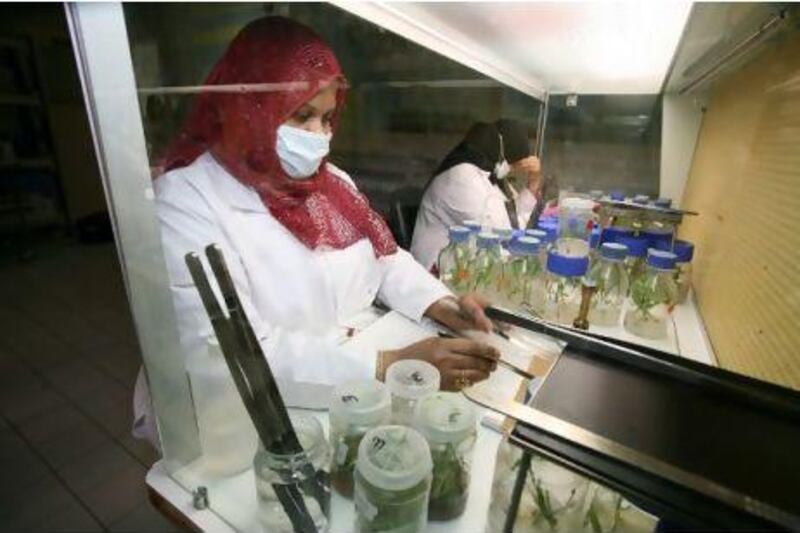ABU DHABI // The Abu Dhabi Education council revealed yesterday that it plans to put an emphasis on career advice and university research over the next decade.
As university heads, teachers and strategists gathered at the Abu Dhabi Higher Education forum yesterday to tackle the issue of how to prepare every Emirati graduate for work, Adec set itself a series of targets to be met by 2019.
MORE UAE NEWS: Our pick of today's top local news stories
Three little girls who did not die in vain Rigorous law enforcement, continuous development of pedestrian crossings and numerous awareness campaigns have led to a decline in pedestrian fatalities. Read article
British warships arrive in the Emirates Five British warships have arrived in the UAE to undertake military exercises with the UAE Navy. Read article
Two million pounds of Dubai royals' money stolen in London hold-up Three armed gunmen hold up UAE diplomat as he loads cash belonging to Dubai royal family into a limousine outside a branch of Emirates NBD in Knightsbridge.
[ Read article ]
[ MORE UAE NEWS ]
"There is a need to align higher education with the needs of economy," said Dr Mugheer Khamis Al Khaili, the director general of Adec. Currently, he said, too many young Emiratis were struggling to get a job.
That, according to Adec, is because the graduates being produced by the country's universities are misaligned with the emirate's present and future needs.
To rectify that, said Dr Al Khaili, Adec plans to "bring businesses and universities together to create a committee for human capital planning, to specify the needs for manpower in the next 10 years".
Adec wants to get more school-leavers to continue to university - 89 per cent, against the current 69 per cent.
For that, pupils need career guidance to help them decide whether to take the literature or science track - and hopefully to steer them towards science and engineering degrees.
By 2019, Adec wants four in five schoolchildren to receive career advice at school.
The science track is likely to be a hard sell, given its current unpopularity. Especially outside the big cities, the literature track remains the choice of an overwhelming majority - 80 per cent in Madinat Zayed and Al Marfa and 95 per cent in al Quaa and al Wagan.
"There are serious challenges ahead," Dr Raffik Makki, head of strategic division at Adec said. "Serious funding challenges. The top 10 universities in the US have spent US$9.8bn on research alone last year - here we spend Dh100 million."
The council desperately wants to reduce the dropout rate. Currently only 20 per cent of students complete higher education; by 2019, Adec hopes to double that.
It also has plans for all universities to be internationally accredited. Currently, 10 per cent meet this standard. The council acknowledges that it will need to improve its retention of staff to see through these plans. It wants to reduce turnover from the current annual rate of 15 per cent to 10 per cent.
By the end of the decade, Adec said at least two universities should be ranked in the Jiao Tong top 500 and Times Higher Education top 200 - at present none feature on these lists.
That will require bigger, better research centres - five by the end of the decade - and a massive increase in research spending from the current 0.01 per cent of GDP to 0.74 per cent by 2019.
As a benchmark of the success of that research, Adec wants every academic to have their work cited by other researchers on average once a year - five times the current level.
Yesterday's forum was the first of a series with stakeholders, according to Dr Makki. The next is expected to take place in September.
"The goal of this series of workshops is to bring government and industry together with academia and address the challenges," he said.
"Companies have come with data and universities take a look at these. A lot of information was gathered today, it will be collected and sent to everybody."
He said that while everyone knows of the challenges in the education sector in the Emirate, not a lot has been done to address it.
"At the next meeting, we will have some plan," he said.
@ For more on EDUCATION visit thenational.ae/topics






